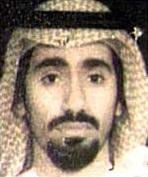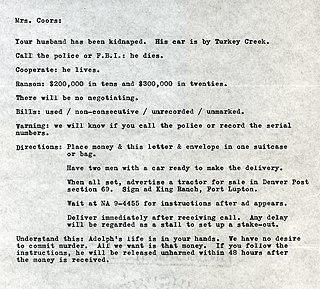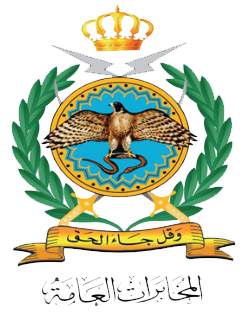Related Research Articles

Abd al-Rahim Hussein Muhammed Abdu al-Nashiri is a Saudi Arabian citizen alleged to be the mastermind of the bombing of USS Cole and other maritime attacks. He is alleged to have headed al-Qaeda operations in the Persian Gulf and the Gulf states prior to his capture in November 2002 by the CIA's Special Activities Division.

Extraordinary rendition is a euphemism for state-sponsored kidnapping in another jurisdiction and transfer to a third state. The phrase usually refers to a United States-led program used during the War on Terror, which had the purpose of circumventing the source country's laws on interrogation, detention, extradition and/or torture. Extraordinary rendition is a type of extraterritorial abduction, but not all extraterritorial abductions include transfer to a third country.
Fawaz Yahya al-Rabeiee was an al-Qaeda terrorist, sentenced to death in 2004 by a Yemeni court for his part in the 2002 attack on the French tanker Limburg. Al-Rabeiee escaped custody in February 2006, with 22 other inmates, but was killed 1 October 2006 in San‘a’, along with another al-Qaeda suspect identified as Mohammed Daylami.
Extrajudicial prisoners of the United States, in the context of the early twenty-first century War on Terrorism, refers to foreign nationals the United States detains outside of the legal process required within United States legal jurisdiction. In this context, the U.S. government is maintaining torture centers, called black sites, operated by both known and secret intelligence agencies. Such black sites were later confirmed by reports from journalists, investigations, and from men who had been imprisoned and tortured there, and later released after being tortured until the CIA was comfortable they had done nothing wrong, and had nothing to hide.

Jordanian General Intelligence Directorate, or GID is the primary civilian foreign and domestic intelligence agency of the Hashemite Kingdom of Jordan. The GID is reportedly one of the most important and professional intelligence agencies in the Middle East; the agency has been instrumental in foiling several terrorist attacks both in Jordan and around the world.

The FBI Seeking Terror Information list is the third major "wanted" list to have been created by the United States Department of Justice's Federal Bureau of Investigation to be used as a primary tool for publicly identifying and tracking down suspected terrorists operating against United States nationals at home and abroad. The first preceding list for this purpose was the FBI Ten Most Wanted Fugitives list. In 2001, after the September 11 attacks, that list was supplanted by the FBI Most Wanted Terrorists list, for the purpose of listing fugitives who are specifically wanted for acts of terrorism.
Alyan Muhammad Ali al-Wa'eli became wanted in 2002, by the United States Department of Justice's FBI, which was then seeking information about his identity and whereabouts. Ali al-Wa'eli was identified as a known associate of the Yemen cell leader, Fawaz Yahya al-Rabeei.
Omar Ahmad Omar al-Hubishi became wanted in 2002, by the United States Department of Justice's FBI, which was then seeking information about his identity and whereabouts. He was identified as a known associate of the Yemen cell leader, Fawaz Yahya al-Rabeei.
Ammar Abadah Nasser al-Wa'eli became wanted in 2002, by the United States Department of Justice's FBI, which was then seeking information about his identity and whereabouts. He was identified as a known associate of the Yemen cell leader, Fawaz Yahya al-Rabeei.
Samir Abduh Sa'id al-Maktawi became wanted in 2002, by the United States Department of Justice's FBI, which was then seeking information about his identity and whereabouts. He was identified as a known associate of the Yemen cell leader, Fawaz Yahya al-Rabeei.
Abdulrab Muhammad Muhammad Ali al-Sayfi, a Yemeni, became wanted in 2002, by the United States Department of Justice's FBI, which was then seeking information about his identity and whereabouts. He was identified as a known associate of the Yemen cell leader, Fawaz Yahya al-Rabeei.
Issam Ahmad Dibwan al-Makhlafi, aka Akrama, became briefly wanted in 2002, by the United States Department of Justice's FBI, which was then seeking information about his identity and whereabouts. In early 2002, he had been named in a suspected Yemen plot, for which he became listed on the FBI's third major "wanted" list, now known as the FBI Seeking Information - War on Terrorism list. He was identified as a known associate of the Yemen cell leader, Fawaz Yahya al-Rabeei. But he was quickly discovered to already be in Yemen prison, and was promptly removed from the FBI "wanted" list. Very little else is known about him.
Ahmad al-Akhader Nasser Albidani became briefly wanted in 2002, by the United States Department of Justice's FBI, which was then seeking information about his identity and whereabouts. In early 2002, he had been named in a suspected Yemen plot, for which he became listed on the FBI's third major "wanted" list, now known as the FBI Seeking Information – War on Terrorism list. He was identified as a known associate of the Yemen cell leader, Fawaz Yahya al-Rabeei. But he was quickly discovered to already be in Yemen prison, and was promptly removed from the FBI "wanted" list. Very little else is known about him.
Bashir Ali Nasser al-Sharari became briefly wanted in 2002, by the United States Department of Justice's FBI, which was then seeking information about his identity and whereabouts. In early 2002, he had been named in a suspected Yemen plot, for which he became listed on the FBI's third major "wanted" list, now known as the FBI Seeking Information - War on Terrorism list. He was identified as a known associate of the Yemen cell leader, Fawaz Yahya al-Rabeei. But he was quickly discovered to already be in Yemen prison, and was promptly removed from the FBI "wanted" list. Very little else is known about him.
Abdulaziz Muhammad Saleh bin Otash, became briefly wanted in 2002, by the United States Department of Justice's FBI, which was then seeking information about his identity and whereabouts. In early 2002, he had been named in a suspected Yemen plot, for which he became listed on the FBI's third major "wanted" list, now known as the FBI Seeking Information – War on Terrorism list. He was identified as a known associate of the Yemen cell leader, Fawaz Yahya al-Rabeei. But he was quickly discovered to already be in Yemen prison, and was promptly removed from the FBI "wanted" list.
Shuhour Abdullah Mukbil al-Sabri became briefly wanted in 2002, by the United States Department of Justice's FBI, which was then seeking information about his identity and whereabouts. In early 2002, he had been named in a suspected Yemen plot, for which he became listed on the FBI's third major "wanted" list, now known as the FBI Seeking Information – War on Terrorism list. He was identified as a known associate of the Yemen cell leader, Fawaz Yahya al-Rabeei. But he was quickly discovered to already be in Yemen prison, and was promptly removed from the FBI "wanted" list. Very little else is known about him.
Abdullah Al-Rimi or Abdullah Ahmed Al-Remi,, has been described as an "important al-Qaeda recruiter", and became wanted in 2006 by the United States Department of Justice's FBI, "sought in connection with possible terrorist threats against the United States." He was one of 23 people who escaped from Yemen prison in San'a, including the Yemen cell leader, Fawaz Yahya al-Rabeei. Several weeks later he became listed on the FBI's third major "wanted" list, the FBI Seeking Information – War on Terrorism list. Very little else is known about him.
Riyadh, alternately Riad, alternately Riyadh the facilitator, is a pseudonym that was given to a number of individuals who were suspected to be member of al-Qaeda. American intelligence officials and the press used the pseudonym for at least two individuals.

Sharqawi Abdu Ali al-Hajj, also known as Riyadh the Facilitator, is a Yemeni alleged Al-Qaeda associate who is currently being held in the United States' Guantanamo Bay detention camps, in Cuba. He is accused of being a 'senior al-Qaida facilitator who swore an oath of allegiance to and personally recruited bodyguards for Osama Bin Laden.

Ahmad Abousamra, known also as Abu Sulayman ash-Shami and Abu Maysarah ash-Shami, was a Syrian-American Islamic militant and ideologue who served as the chief editor of the Islamic State of Iraq and the Levant's Dabiq magazine. In 2013, he was placed on the US Federal Bureau of Investigation's 'most wanted list' and made the subject of a $50,000 reward because of his connections to a Massachusetts terrorism investigation centering on his alleged close associate Tarek Mehanna, who was arrested in 2009 and convicted of terrorism-related charges in a Boston court in late 2011. He was featured on the FBI's Most Wanted Terrorists list for allegedly attempting to obtain military training in his trips to Yemen and Pakistan for the purpose of killing American soldiers overseas.
References
- ↑ FBI Most Wanted Terrorists Seeking Information 2-11-02 Archived 2002-06-05 at the Wayback Machine , [ dead link ]
- ↑ FBI Most Wanted Terrorists Seeking Information 2-14-02 Archived 2002-06-10 at the Wayback Machine , revision by FBI removed 6 Yemen prisoners' names from the list [ dead link ]
- ↑ Human Rights Watch, Double Jeopardy: CIA Rendition to Jordan (2008)